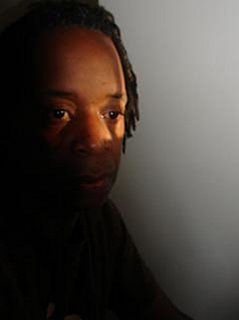Right-wing nonprofit associations are building the new Judea and Samaria District Police building in the E-1 corridor between Jerusalem and Ma'aleh Adumim. In exchange they will receive the current police building, located in the heart of the East Jerusalem neighborhood of Ras al-Amud, according to an advocacy group.
The Ir Amim advocacy group made this claim in a petition to the High Court of Justice against the construction of the new station.
The lot where the current police building is located was purchased by the Bukharan Community Committee during Ottoman rule in order to expand the Jewish cemetery on the Mount of Olives, but it was never used for this purpose. Following the 1967 war, the State of Israel expropriated the land for the police station. For years discussions were held between representatives of the Bukharan community and the government over compensation for the land.
In recent years, settler organizations have taken notice of the police station, mainly because it is across from Ma'aleh Zeitim, the neighborhood built by American millionaire Irwin Moskowitz within the Palestinian neighborhood of Ras al-Amud.
At the time, Nadav Shragai reported in Haaretz that the settlers' "big plan" was to receive the police building from the Bukharan Community Committee, which would give them significant territorial contiguity within Ras al-Amud.
Last July an agreement was signed between the committee and the Israel Police stipulating that the committee "or its agents" would carry out all the construction work on the new police station, after which it would receive the police building in Ras al-Amud. Experts estimated the cost of the project at $10 million.
The agreement authorized the committee to contract out all of the labor, from the architect and interior designer to the electricity and safety engineer. The only restriction was that they had to meet the field security requirements of the Israel Police. The agreement was signed by National Police Commissioner Moshe Karadi.
The agreement stipulated that the Bukharan Community Committee would obtain from the Civil Administration a 14-dunam (3.5 acre) allotment for the station in the E-1 area.
Approval was almost immediate, and in August then-prime minister Ariel Sharon ordered the plans for the new police station in Ma'aleh Adumim submitted for approval. Last February the Civil Administration's Supreme Planning Committee approved the plan after rejecting objections submitted by Palestinian residents in the area.
In its petition, Ir Amim claims the agreement proves that the real reason behind moving the Judea and Samaria police station to E-1 is to enable the settlers in Ras al-Amud to use the building.
"The real beneficiaries of the plan are not the residents of Judea and Samaria, whom the police are supposed to serve, but rather the settlers in East Jerusalem," the petition states. Ir Amim's attorney, Daniel Seidemann, claims that representatives of settler associations helped to plan the new police station and even visited the site when the decision makers were there.
According to the agreement between the police and the Bukharan committee, as well as a separate agreement between the committee and the Israel Lands Administration regarding the Ras al-Amud property, after the agreement was carried out, "The land shall stop serving the needs of the public."
This means the land could be used for residential purposes. There is a serious shortage of public institutions such as kindergartens and schools in East Jerusalem, and in many cases the municipality has claimed there is not enough land for public services. The municipality even used this claim as a reason for failing to meet an explicit promise to the High Court to build educational institutions in East Jerusalem.
Jerusalem Deputy Mayor Yehoshua Pollak, who is a member of the local planning and building committee, said a zoning change of this kind must be approved by both the local and regional planning councils. He said he cannot remember a permit of this kind ever being approved for Ras al-Amud.
Attorney Avner Salem, who represents the Bukharan committee, refused to discuss the issue.
Seidemann says he has information "from official sources" that settler organizations will receive the police building once it is vacated, and that they are funding the construction of the new police station. He pointed out that the Bukharan committee did not deny these claims when they came up in court, and that representatives of both the settlers and the Bukharan committee confirmed these claims in the past.
The Ministry of Public Security said the Bukharan committee is carrying out the work on the new police station and that it is unaware of any involvement of right-wing organizations.
By Meron Rapoport, Haaretz Correspondent
Wednesday, April 26, 2006
Subscribe to:
Post Comments (Atom)

No comments:
Post a Comment